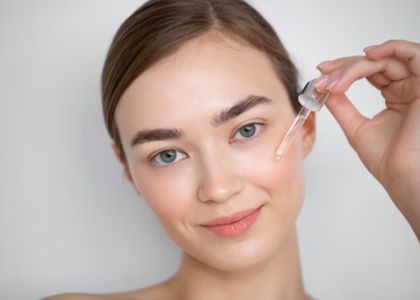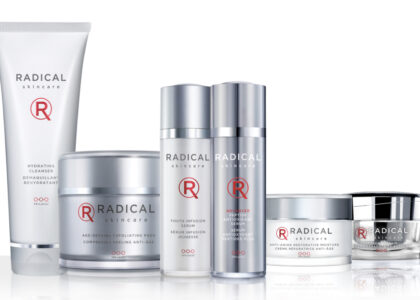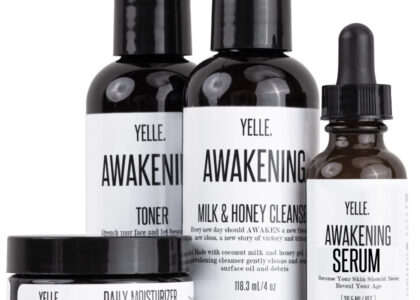When it comes to the subject of skincare, it extends beyond mere vanity; it serves as a testament to our unwavering commitment to our overall health, well-being, and self-assurance. While the beauty industry thrives on a plethora of over-the-counter products, some individuals necessitate a more potent solution. This is where the realm of prescription skincare steps in. Within the field of dermatology, it offers specialized remedies tailored to address more severe or persistent skin concerns. In the forthcoming article, we will delve deeply into the top-tier prescription skincare offerings available today.
The Rise of Prescription Skin Care
Why have prescription skin care products gained so much attention recently?
Targeted Treatment
Prescription skincare products stand out for their exceptional precision in addressing specific skin concerns. In stark contrast to generic off-the-shelf solutions, these formulations are meticulously crafted to combat conditions such as severe acne, hyperpigmentation, rosacea, or deep-set wrinkles. This laser-focused approach guarantees that individuals can effectively tackle their distinct skin issues, resulting in enhanced outcomes and overall satisfaction.
Example:
| Skin Concern | Prescription Treatment |
|---|---|
| Severe Acne | Prescription topical retinoids |
| Hyperpigmentation | Hydroquinone-based formulations |
| Deep-set Wrinkles | Prescription-strength retinol creams |
| Rosacea | Topical medications and antibiotics |
Potent Ingredients
A notable hallmark of prescription skincare products lies in their elevated concentration of active ingredients. These potent actives, including retinoids, hydroquinone, and glycolic acid, are renowned for their effectiveness in combating a wide range of skin issues. The increased potency allows for faster and more noticeable results compared to over-the-counter alternatives, which often have lower concentrations due to safety considerations.
Example:
| Active Ingredient | Common Uses |
| Tretinoin | Reduces wrinkles and fine lines |
| Hydroquinone | Treats hyperpigmentation |
| Clindamycin | Fights acne and bacterial infections |
| Tazarotene | Addresses psoriasis and acne |
Personalized Approach
Prescription skincare products provide a highly individualized approach, distinguishing them from over-the-counter solutions. Drawing upon an individual’s unique skin type, condition, and medical history, dermatologists can prescribe treatments with the highest likelihood of effectiveness. This personalized approach spares individuals from the often frustrating process of trial and error when seeking the right product, resulting in valuable savings of both time and money.
Example:
| Skin Assessment Method | Outcome |
|---|---|
| Dermatological Examination | Determines specific skin type and conditions |
| Patch Testing | Identifies potential allergens or irritants for a person |
| Skin History Review | Factors in past treatments and skin responses |
| Genetic Factors | Takes into account familial history of skin conditions |
Holistic Treatment Plans
Prescription skincare goes beyond merely targeting a single concern; it frequently forms an integral part of a comprehensive treatment plan. In this approach, while the topical treatment may address a specific issue like acne, the dermatologist may also offer advice on dietary adjustments, lifestyle modifications, or suggest other complementary treatments that can synergistically promote overall skin health and longevity.
Example:
| Treatment Aspect | Purpose |
|---|---|
| Dietary Recommendations | Reducing foods that may trigger skin issues |
| Lifestyle Guidance | Tips for stress reduction, sleep improvement, etc. |
| Complementary Therapies | Such as chemical peels or laser treatments |
| Skincare Regimen | A daily routine that incorporates the prescribed product, as well as other recommended care products. |
Backed by Science
Before prescription skincare products are made accessible to patients, they undergo thorough scientific research and rigorous testing. Clinical trials, dermatological studies, and comprehensive safety assessments are conducted to confirm their efficacy and safety. This stringent scientific validation instills confidence in both healthcare professionals and consumers, assuring them of the product’s capacity to deliver proven results.
Key Points:
- Clinical Trials: These products frequently undergo extensive clinical trials involving hundreds or even thousands of participants to meticulously evaluate their effectiveness;
- Dermatologist Involvement: Dermatologists play a pivotal role in prescribing these products, customizing treatment plans to meet individual needs;
- Safety Assurance: Extensive testing guarantees that prescription skincare products have well-documented safety profiles. This includes a thorough understanding of potential side effects and contraindications, ensuring a safe and informed use.
Spotlight on the Best Prescription Skin Care Products

Prescription skincare products have evolved into indispensable tools in the dermatologist’s toolkit, effectively tackling a broad spectrum of skin concerns. Whether it’s combating the signs of aging, managing persistent acne, or addressing dark spots and pigmentation issues, these products provide potent solutions capable of revitalizing your skin’s health and appearance. Within this comprehensive guide, we will thoroughly examine the leading prescription skincare products, delving into their specific purposes, popular choices, and the mechanisms through which they work their transformative magic..
Retinoids
Retinoids are incredibly versatile and can effectively address a wide array of skin concerns. However, it’s of paramount importance to adhere to your dermatologist’s guidance for correct application, as these products can be drying and may heighten sensitivity to sunlight.
- Purpose: Retinoids are renowned for their multifaceted benefits, serving as potent tools for both anti-aging and acne treatment;
- Popular Options: Two well-recognized retinoids are Tretinoin (commonly known as Retin-A) and Adapalene (marketed as Differin);
- How it Works: Derived from vitamin A, retinoids function by accelerating the turnover of skin cells. This increased cell turnover yields several effects: it promotes collagen production, diminishing the appearance of fine lines and wrinkles, and it assists in clearing clogged pores, making it a valuable ally in the battle against acne. However, it’s crucial to follow dermatologist recommendations for safe and effective use.
Hydroquinone
When employing hydroquinone, it is imperative to closely adhere to your dermatologist’s guidance. Prolonged use of this substance can potentially result in side effects such as skin irritation or a condition known as ochronosis. Your dermatologist’s expertise will help ensure safe and effective usage.
- Purpose: Hydroquinone is meticulously formulated to target issues related to hyperpigmentation, including dark spots, melasma, and post-inflammatory hyperpigmentation;
- Popular Options: Prominent brands that incorporate hydroquinone include Lustra and Tri-Luma;
- How it Works: Hydroquinone operates as a skin-lightening agent by inhibiting the production of melanin, the pigment responsible for dark spots. By diminishing melanin production, it effectively diminishes hyperpigmentation, gradually leading to a more even skin tone. However, it is essential to follow your dermatologist’s recommendations for safe and effective usage.
Topical Antibiotics
Utilizing topical antibiotics should always be undertaken under the guidance of a dermatologist. This precaution is crucial to prevent antibiotic resistance and to closely monitor any potential side effects.
- Purpose: Topical antibiotics serve as a primary treatment for acne, particularly when it is linked to the presence of bacteria on the skin;
- Popular Options: Frequently prescribed topical antibiotics for acne encompass Clindamycin and Erythromycin;
- How it Works: These antibiotics operate by directly addressing and eliminating the bacteria, notably Propionibacterium acnes, responsible for the development of acne. Moreover, they aid in reducing the inflammation associated with acne breakouts, promoting clearer and healthier-looking skin. However, it’s crucial to use them under the guidance of a dermatologist to ensure safe and effective results.
Hyaluronic Acid Fillers
Hyaluronic acid fillers provide a non-surgical alternative to more invasive procedures such as facelifts. They offer immediate results with minimal downtime, making them an attractive option for those seeking to enhance their appearance without surgery.
- Purpose: Hyaluronic acid fillers are specifically formulated to combat signs of aging, particularly wrinkles and fine lines;
- Popular Options: Established brands that offer hyaluronic acid fillers include Juvederm and Restylane;
- How it Works: These fillers contain hyaluronic acid, a natural substance present in the skin. When injected beneath the skin’s surface, they augment volume and moisture, effectively filling and rejuvenating sagging or wrinkled areas. This leads to a smoother, more youthful appearance.
Azelaic Acid
Using azelaic acid as directed by a dermatologist can lead to significant improvements in the appearance and health of your skin.
- Purpose: Azelaic acid is a versatile prescription product used to address a range of skin concerns, including rosacea, acne, and pigmentation issues;
- Popular Options: Brands like Finacea and Azelex offer azelaic acid formulations;
- How it Works: Azelaic acid has anti-inflammatory properties that help reduce redness and inflammation associated with rosacea. Additionally, it exfoliates the skin’s surface, preventing pores from clogging, and effectively treats acne. Moreover, azelaic acid can fade hyperpigmentation and improve overall skin texture.
Conclusion
The best prescription skin care products offer a potent and targeted approach to skin concerns that over-the-counter solutions might not fully address. Whether you’re dealing with persistent acne, age-related concerns, or other skin issues, there’s likely a prescription solution that can help. Remember, while these products promise impressive results, it’s crucial to consult with a dermatologist to find the best fit for your skin’s unique needs.
Remember, radiant skin is not just about the products you use but also about your overall health, diet, and lifestyle. Always aim for a holistic approach to skin care.
FAQs
If over-the-counter products aren’t addressing your concerns, or if you have specific skin issues like severe acne, rosacea, or very pronounced signs of aging, it might be time to consider prescription solutions.
Just like any medication, the best prescription skin care products can have side effects. Common ones include dryness, peeling, and increased sensitivity to the sun. It’s always best to discuss potential side effects with a dermatologist.
It depends on the product. Some ingredients might not play well together, leading to increased irritation or diminished effectiveness. Always consult with a professional before mixing products.
The timeline varies based on the product and the issue being addressed. Some products show results in a few weeks, while others might take several months. Patience and consistent application are key.





